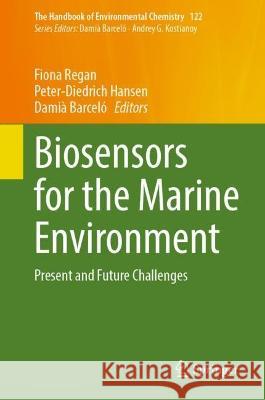Biosensors for the Marine Environment: Present and Future Challenges » książka
topmenu
Biosensors for the Marine Environment: Present and Future Challenges
ISBN-13: 9783031320002 / Angielski
Biosensors for the Marine Environment: Present and Future Challenges
ISBN-13: 9783031320002 / Angielski
cena 1207,67
(netto: 1150,16 VAT: 5%)
Najniższa cena z 30 dni: 1156,64
(netto: 1150,16 VAT: 5%)
Najniższa cena z 30 dni: 1156,64
Termin realizacji zamówienia:
ok. 16-18 dni roboczych.
ok. 16-18 dni roboczych.
Darmowa dostawa!
Kategorie:
Kategorie BISAC:
Wydawca:
Springer
Seria wydawnicza:
Język:
Angielski
ISBN-13:
9783031320002











